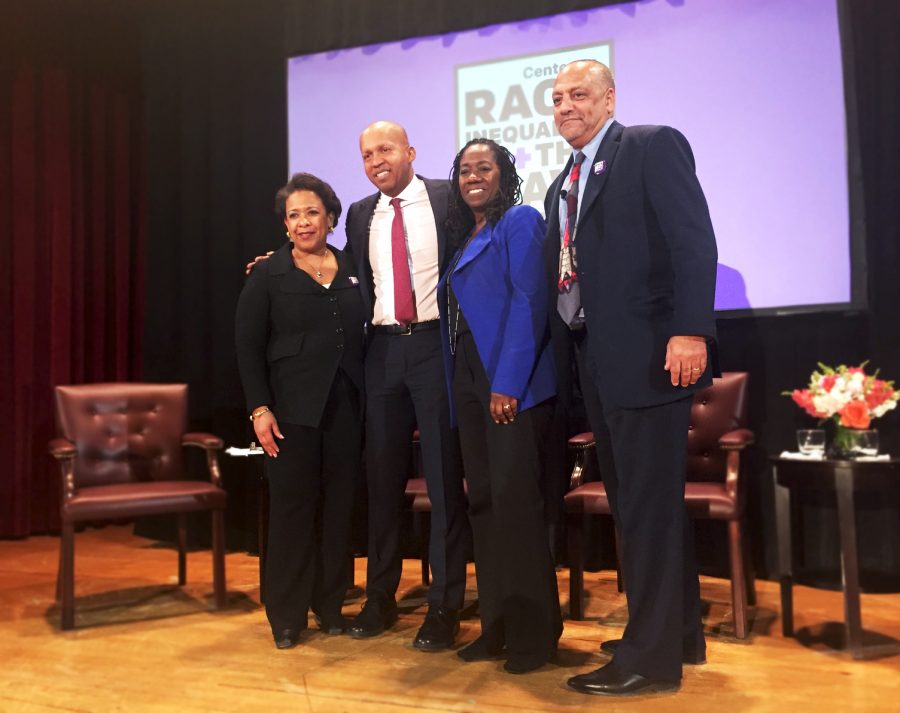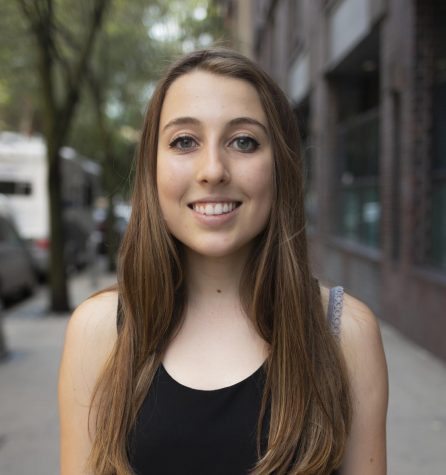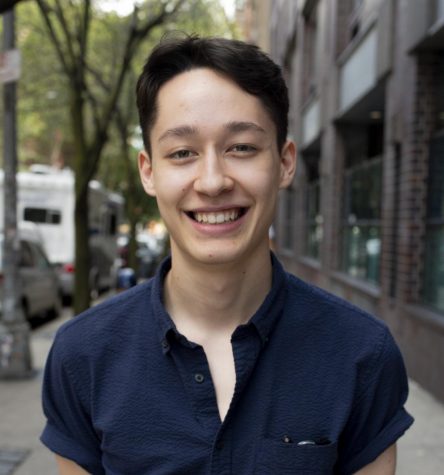Civil Rights Lawyers Examine Race, Inequality and Law
From left to right, former Attorney General Loretta Lynch, NYU Law professor Bryan Stevenson, Sherrilyn Ifill and Tony Thompson at the Center on Race, Inequality and the Law’s Inaugural Conversation. This event took place in the Greenberg Lounge of the NYU Law school on February 27 to discuss the effects of racial bias and economic inequality.
February 28, 2017
Former Attorney General Loretta Lynch, President and Director of the NAACP Legal Defense and Educational Fund Sherrilyn Ifill and prominent civil rights lawyer and Professor of Clinical Law Bryan Stevenson spoke at the NYU School of Law last night. The three lawyers discussed race and inequality during the inaugural conversation of the Center on Race, Inequality and the Law.
“Through research, teaching and commentary, the center seeks to advance public knowledge and to inform professional practice in order to build and maintain a more just society,” a pamphlet handed out at the event said. “The center will explore ways to develop facts and frame issues, collaborate with advocates and communities and evaluate the effectiveness of the strategies that have been developed in order to generate more effective forms of advocacy around those critical issues.”
The three panelists discussed topics such as racism in education; inequality in housing and transportation; the economic cost of racism; and action on the local and federal levels. During this conversation, Stevenson spoke about how students should remain hopeful despite the difficulties faced for certain groups under recent executive orders.
“You do not have the choice of being helpless,” Stevenson said to a full room. “Hopelessness is the enemy of justice because when you are fighting for justice you are fighting against hopelessness. Justice prevails when hopelessness persists — the truth is that you are either hopeful, working for justice or you are the problem.”
Stevenson said that at times he has felt overwhelmed by the fight for justice, but thinks back to 60 years ago when lawyers had a much more challenging fight. He said reflecting reminds him that he does not have the right to complain about legal challenges.
The conversation, which cited the post-election political climate as an incentive to demand justice, was moderated by Professor of Clinical Law and Faculty Director of the Center on Race, Inequality and the Law Anthony Thompson. He said that the need to speak broadly and deeply about how race is confronted emerged from the conversation.
“Race is an American problem and requires all Americans to be involved in the solution, and I think this panel more than anything amplified that notion,” Thompson said. “The power of responding to what’s going on in a national dialogue and a national debate is that what it has inadvertently done is brought a series of communities that had been isolated and balkanized, together.”
Thompson hopes that in the future, the center will lead the way to national reforms in legal education in the future. He said that there are still problems like a lack of diversity among Law School faculty and universities, including professors from a variety of economic backgrounds, failing to admit students from lower socioeconomic classes.
Thompson said there are still problems with desegregating law school facilities and admitting larger numbers of poor students and not just students of color.
“I think we need to point to legal education more generally, not just at NYU but nationally, that conversations about race, gender, sexuality [and] inequality are not adjuncts to the law but are part of legal education,” Thompson said. “One of my dreams is that we’ll look at how we integrate the work we do at the center into the mainstream of legal education.”
Thompson said that he hopes there will be no need for this center in five years but believes these issues can be difficult to quell, because he believes race forms part of the country’s DNA.
Lynch said that to achieve significant change, people need to begin advocating on the local level — this entails expressing civil rights values to officials and demanding change.
“Politics is about more than who the President is,” Lynch said to the crowd. “You can in fact make change at a local level. If we want to rebuild to a point where we can have a federal government we have to populate it with people who do hold these values near, and we have to cultivate these people.”
She said that making these changes will be the responsibility of future lawyers, and those possible advocates could be law students attending the discussion.
NYU Law Dean Trevor Morrison said that the center will tackle some of the most important issues of our time. He thinks that the conversation gave historical perspective to issues that can be otherwise challenging to confront.
“[The discussion] gave us an ability to understand how to think about the interconnectedness of problems of race, inequality and the role that law has played to sometimes exacerbate those challenges — and the role that law could play toward a solution as well,” Morrison said. “I think the conversation gave the center a roadmap for where it can go in the first months of its work, and I’m tremendously excited that we’re launching it here.”
Morrison believes that Thompson will be a fantastic leader for the initiative and said he is thrilled by the support of community members and friends of the school, like Stevenson and Lynch.
CAS freshman Charlotte Kahan, who attended the event, said she found that the conversation was a really illuminating gathering of several important and insightful activists in the country.
“What they had to say on the state of racial issues in our country was invaluable, and the experience they have in the field can be of benefit to anybody who wants to make a difference in the field of law or civil rights,” Kahan said. “A point that was really important that was made, primarily by Bryan Stevenson, is that our university is not representative of the entire country and everybody’s ideological viewpoints.”
She said that it is important to remember that people in Southern states — which contain over 50 percent of America’s black population — don’t share the same viewpoints as students attending schools like NYU. Kahan thinks it is important that while people in New York fight for equality, they should also notice the need to fight in other states as well.
Stevenson also said that it can be tempting to work in places where civil rights law is established and thriving, but because activists have recently lost rhetorical battles it is important to focus on areas where change is necessary. He thinks that supporters should focus on changing the narrative of equality so that it appeals to all people — not just activists in New York City.
“For me the challenge that we face is a narrative battle,” Stevenson said. “We won passage of the Voting Act, we won passage of the Civil Rights Act but we lost the narrative.”
Email Jemima McEvoy at [email protected].





























































































































































